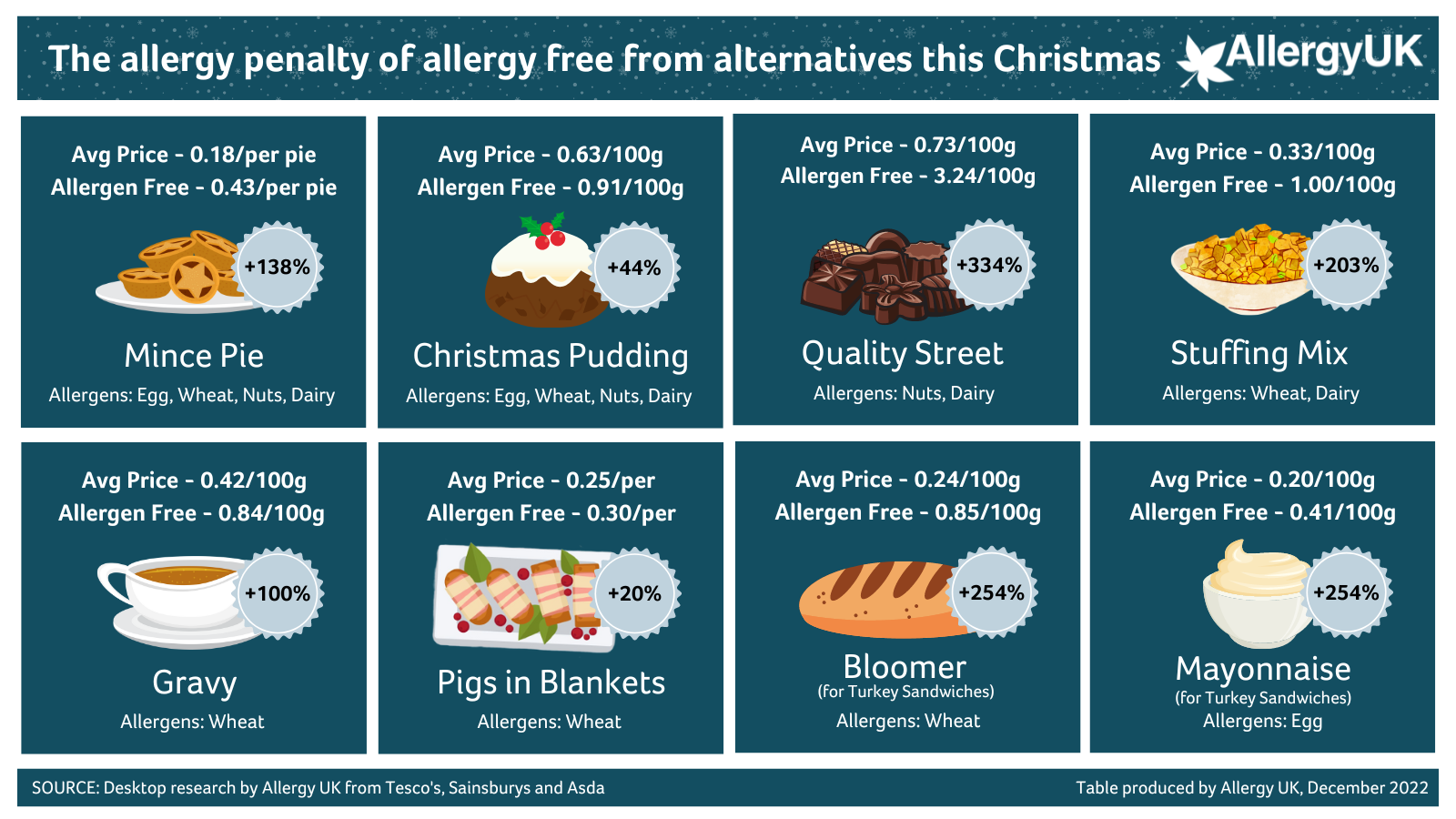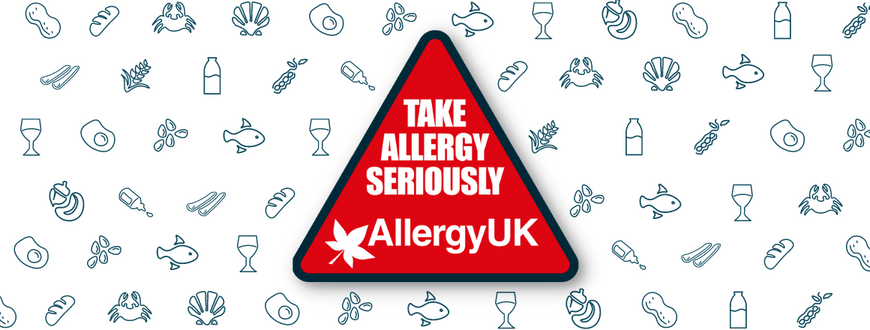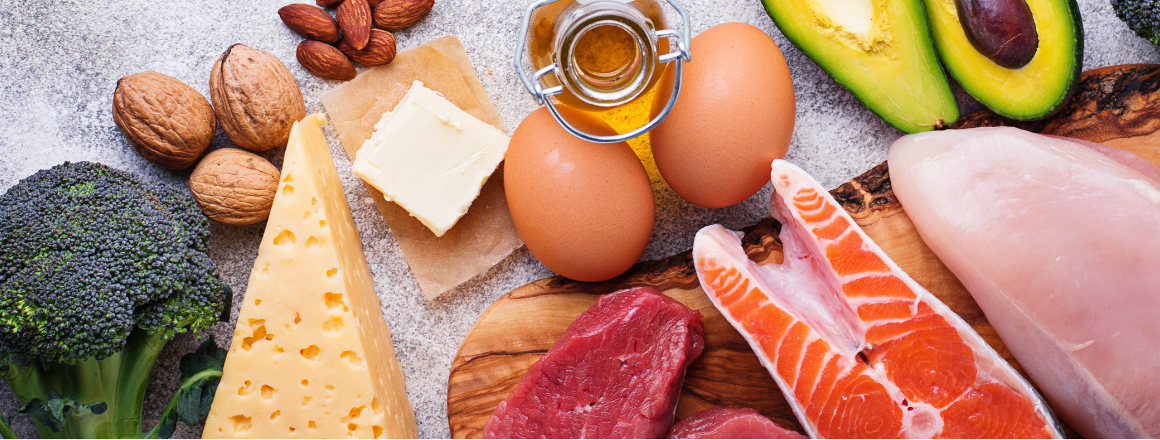Allergy UK has recently conducted its own investigations using a typical Christmas basket to identify how costs on a widely enjoyed meal by millions in the UK compare for those with food allergies compared to those without. The findings revealed a clear ‘allergy penalty’ that is being paid by those who need to enjoy free-from foods this Christmas.
A comparison of Christmas favourites for example, revealed that favourites such asfree-from mince pies (four pack) cost up to 138% more than their standard ingredient equivalents. In fact, an analysis of a shopping basket of nine foods commonly found at Christmas dinner tables were on average 157% more for free-from alternatives than the standard offerings.

This means that in the current cost of living climate, for people with food allergies, staple foods and luxury Christmas items are now becoming increasingly difficult to afford for families living with food allergies. These staple food alternatives are essential to the diet of people with food allergies to help normal healthy development and prevent nutritional deficiencies.
It is a sad reality for many households with food allergies, that there simply is a financial – and a convenience – penalty which has to be paid, simply to be able to access foods which are safe to eat. This year it will be felt even more keenly with the cost-of-living crisis. For these families and individuals there isn’t a lower price point alternative for free-from foods and current labelling practices significantly reduce the choices available to these people even more. It’s a case of pay up or miss out on the favourite festive treats this year. This is why we are calling for labelling practices to be revised, especially with the cost-of-living crisis making free-from foods increasingly prohibitive. – Carla Jones, CEO of Allergy UK
The findings from Allergy UK’s research echo those published in a report by the Food Standard Agency recently. Entitled, ‘Estimating Financial Cost To Individuals With A Food Hypersensitivity’ the study shows that adults with food hypersensitivities, regardless of their specific food hypersensitivity condition, face an increased financial burden compared to those without, with an average household spend being 12% – 27% more on weekly food purchases for those living with a condition. In addition, FSA research found that just over 40 days a year are spent on food hypersensitivity related activities such as researching, shopping for suitable items and discussing their condition.
The study looked at households with food intolerances, coeliac disease and food allergies. Within the group of people who participated in the study, those with food allergies face the highest overall burden. Specifically, those with food allergies will typically spend 11% more on eating out than someone with coeliac disease and their medical costs are 1.6 to 2.5 times more than someone with a food intolerance or coeliac disease. In addition to the financial burden the report also highlights the burdens that cannot be monetised but need to be recognised. These include the social isolation, anxiety and depression that can also impact those living with food allergies.
There are things which can be done to help support families struggling with food allergies this festive season, and all year round. These include donating free-from foods to local food bank collections, so people with food allergies don’t go without. Items such as free-from foods, plant based UHT milks or wheat-free pasta and flour products are all welcome donations. With the cost of living crisis, set to be a backdrop to our daily lives for the foreseeable future, it is yet another reason why we believe at Allergy UK that it’s time to take allergy seriously.

 Helpline
Helpline


